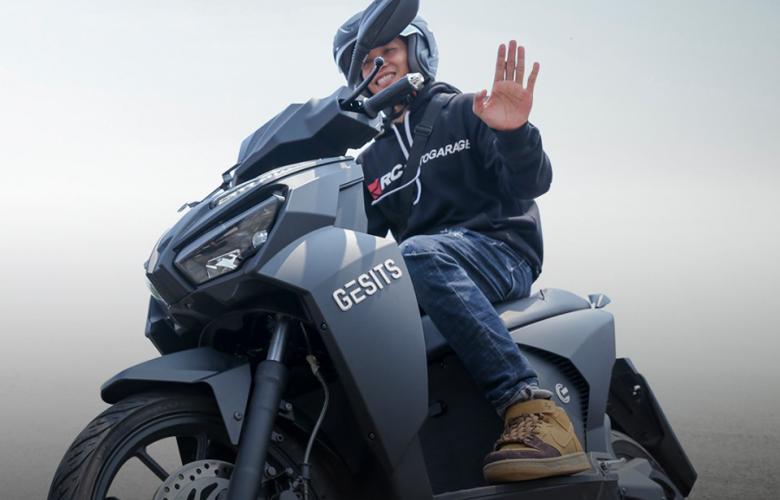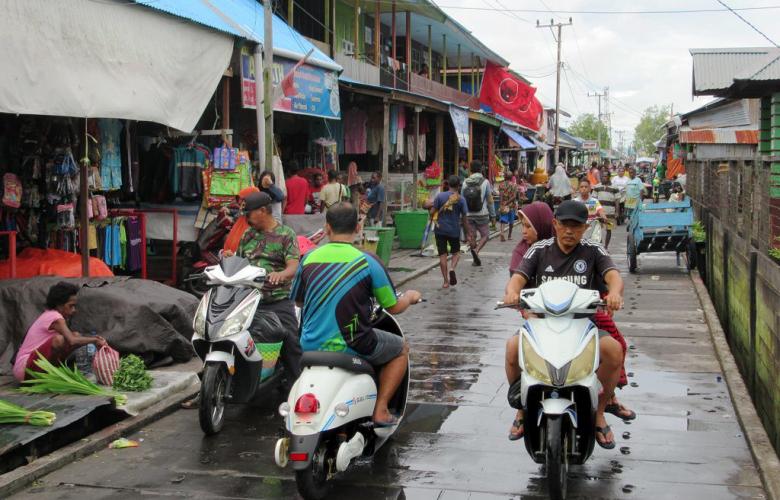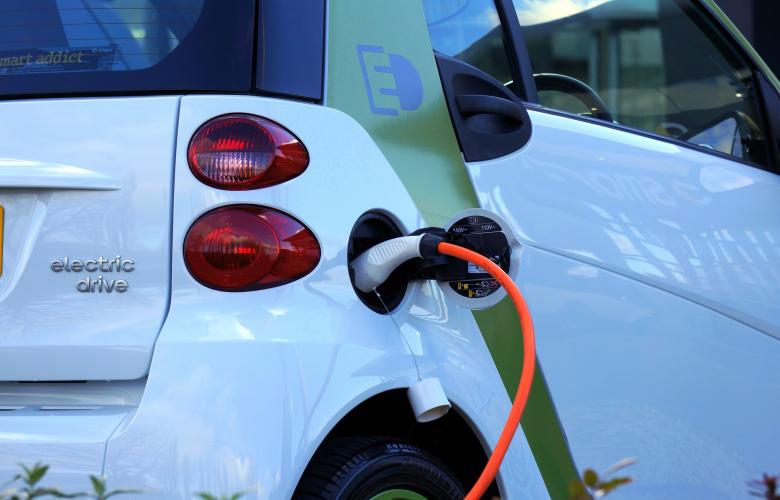Most people think of Bali as one of the world's most popular holiday destinations - and for good reason. Visitor numbers break records every year as the tourism industry continues to drive the local economy.
But there's more than developing award-winning hotels and luxurious boutique villas for investors to get excited about. It seems going green could also be an economic driver in the Island of the Gods.
Bali Clean and Green
Bali's clean and green programme was established in 2010 with the aim of reducing carbon emissions through alternative energy sources and to make the island clean, healthy, comfortable and sustainable for present and future generations.
It may have taken almost 10-years for the idea of alternative energy to gain traction but now, it seems, there is growing momentum across Indonesia, and particularly in Bali, to embrace alternative energy solutions.
PT Gesits are a subsidiary of state-owned construction company PT Wijayaa Karya (WIKA) and they have been producing electric motorcycles in West Java with around 90-percent local materials since 2018. It's worth noting they are getting support from the highest levels of Indonesia's government.
 PT Gesits plan to produce 60,000-electric-powered motorcycles by the end of the year. Image courtesy of PT Gesits/Electric Motorcycle News.
PT Gesits plan to produce 60,000-electric-powered motorcycles by the end of the year. Image courtesy of PT Gesits/Electric Motorcycle News.
EV Industry in Indonesia
Antara News recently reported that President Jokowi is keen to develop the electric vehicle (EV) industry in Indonesia, quoting him as saying, "we have started to open up space for developing electric cars, but we want more than that, we want to build our own electric car industry."
The motorcycle market in Indonesia is a lucrative one. According to Motorcycles Data the market boomed in Q1 2019, after a lull in 2017, with sales up 15-percent. The projection is for around 7-million units to be sold in 2019 with PT Gesits producing 60,000-electric-powered motorcycles by the end of the year.
More SPLUs needed
Interestingly, state owned electricity provider PLN, also appears to support alternative energy initiatives. Local news wires are reporting PLN is moving forward with developing more Public Electric Charging Stations (SPLU) in efforts to provide the necessary infrastructure for electric vehicles to become viable alternatives to petrol and diesel engines.
 Electric scooters are getting more popular across Indonesia. Image by David Stanley on Flickr.
Electric scooters are getting more popular across Indonesia. Image by David Stanley on Flickr.
A tour of Indonesia in electric vehicles recently arrived in Bali as part of an initiative designed to expose home-grown electric vehicles to the public under the name PLN-ITS Explore Indonesia 2019.
ITS - the Sepuluh Nopember Institute of Technology in Surabaya, are also designing and building an electric formula race car to compete in the SAE International Formula SAE® Series against other universities across the globe.
Nyoman Suwarjoni Astawa, General Manager of PLN UID Bali expressed his appreciation for the innovations made in creating electric cars. "PLN as an electricity service provider certainly supports this innovation. We provide car charging facilities through Public Electric Provider Stations (SPLU), which have been spread throughout Indonesia," he explained.
2025 EV Targets
The development of charging stations is, of course, a critical factor in being able to reach the target of having 20-percent of all vehicles produced in Indonesia be electric by 2025. And so is producing the batteries that store the power.
According to a recent report in WOWShack, Gaikindo (Indonesian Motorized Vehicle Industry Association) claim there are currently 1,500 electrical power sources for electric vehicles in Indonesia with 1,100 in Jakarta. "The numbers of charging points will have to increase exponentially to support the amount of EV’s desired," say WOWShack.
 PLN is moving forward with developing more Public Electric Charging Stations. Image by Mike Bird on Pexels.
PLN is moving forward with developing more Public Electric Charging Stations. Image by Mike Bird on Pexels.
Lithium batteries need Nickel
The report goes on to suggest however, that the real "attraction for foreign auto companies is not primarily the domestic car market. It’s the resources." And one of the key resources in lithium batteries is Nickel, of which Indonesia has huge reserves.
Reuters are reporting South Korean, Japanese and Chinese investors have funded a massive USD 4-billion lithium battery project in Morowali in Central Sulawesi.
Coordinating Maritime Minister, Luhut Pandjaitan is being reported by Reuters as having mapped out a broader strategy, which included introducing a fiscal scheme offering tax cuts to EV battery producers and automakers. “Of course, maybe we can export these batteries ... But then, if you build a factory here you can also supply batteries to cars produced in Indonesia,” said Pandjaitan.
Both Hyundai and Mitsubishi recently announced they were working with the Indonesian government to develop the EV sector further while PT Astra International (importers of Honda vehicles) and GoJek are "currently testing an electric-powered moped with the Honda PCX Electric to further promote an environmentally friendly lifestyle," say Tempo.
Sources: Liputan 6, Berita Bali, Bali Post, The Jakarta Post, GridOTO, Antara Bali, Motorcycles Data, Bali Clean and Green, WOWShack, Sepuluh Nopember Institute of Technology, Reuters, Tempo, Electric Motorcycle News, PT Gesits
Similar to this:
Can private business work with PLN to drive Indonesia's alternative energy future?
Can Bali make its dream of a renewable energy future come true?
Bali’s future renewable energy plans




 PT Gesits plan to produce 60,000-electric-powered motorcycles by the end of the year. Image courtesy of
PT Gesits plan to produce 60,000-electric-powered motorcycles by the end of the year. Image courtesy of  Electric scooters are getting more popular across Indonesia. Image by
Electric scooters are getting more popular across Indonesia. Image by  PLN is moving forward with developing more Public Electric Charging Stations. Image by Mike Bird on Pexels.
PLN is moving forward with developing more Public Electric Charging Stations. Image by Mike Bird on Pexels.


